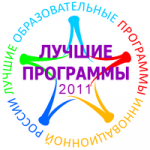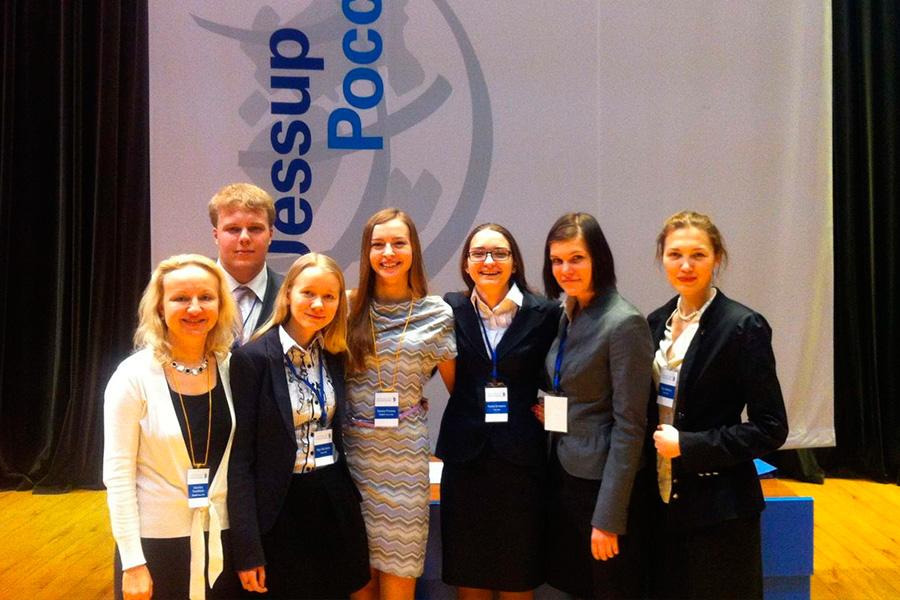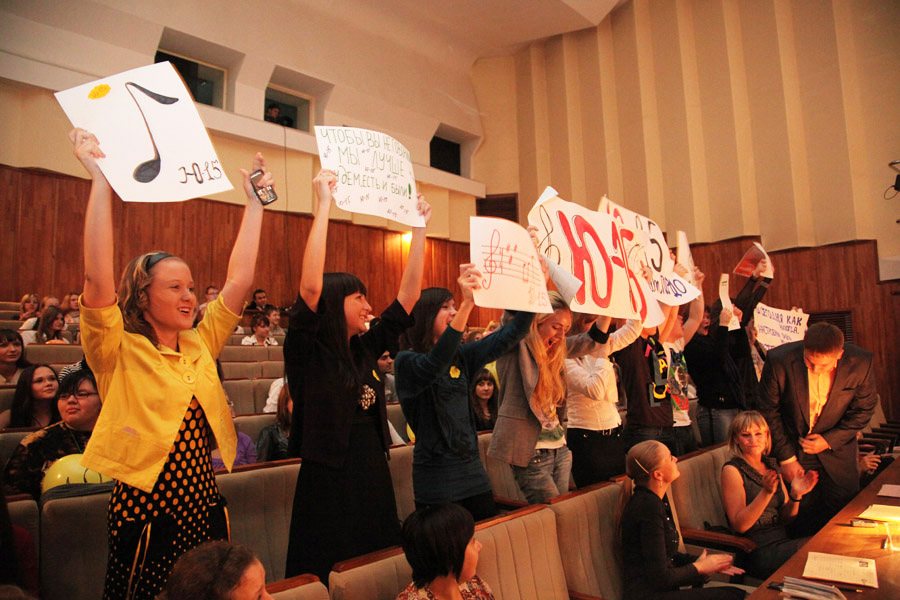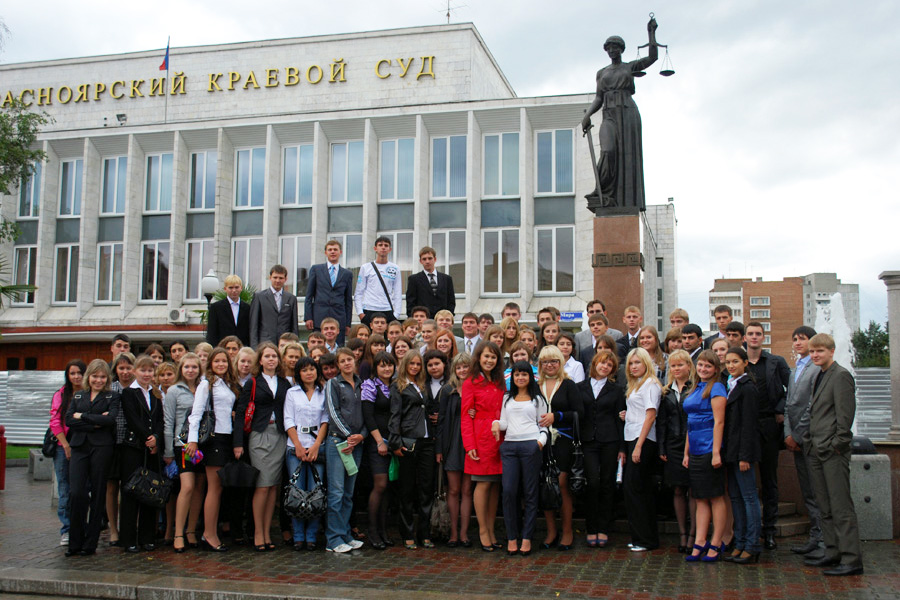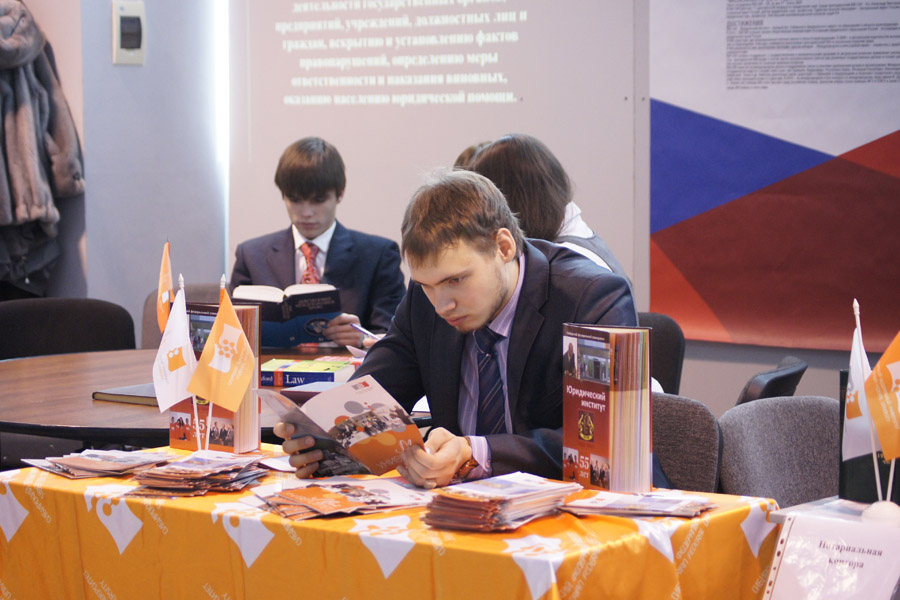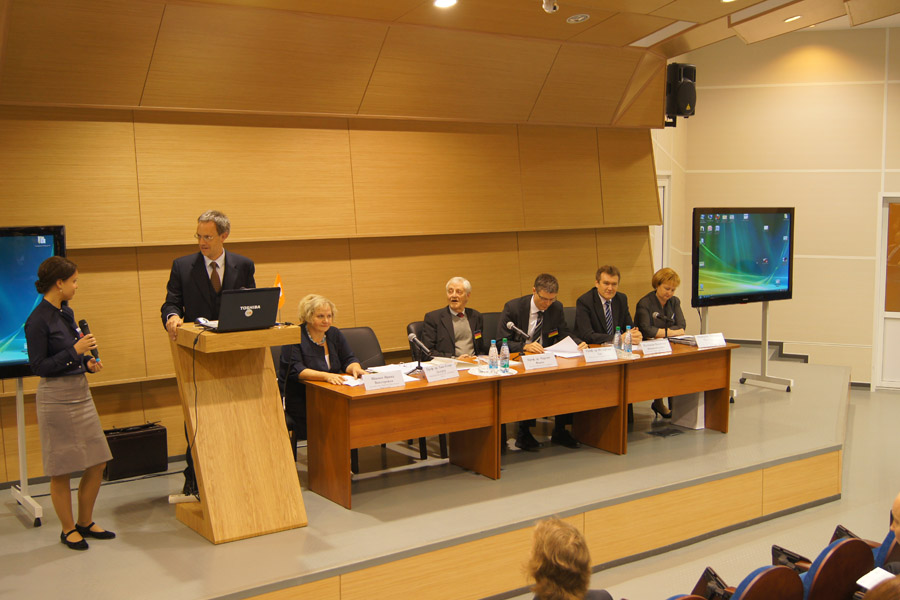In 2011 the Law Institute passed the social accreditation held by the Association of Lawyers of Russia.The Association of Lawyers of Russia unites a great number of professional lawyers of different law spheres. It is comprised of practicing lawyers as well as law professors. One of the areas of the Association’s activity is the promotion of the quality of legal education including the social accreditation of the higher schools of law. The accreditation was passed successfully and the Law Institute was recognized as the educational institution which prepares high-quality professionals in the sphere of law. The law clinic launches and wins. New victories and new honorary mentions come.
Not so much time pasted since the last news about the victories of Krasnoyarsk Law Clinic came out . Once again new victories and new honorary mentions come. Due to work of Ekaterina Hornyak and her curator Sergey Gutnik the legitimate interests of minor child, whose father evaded from acknowledgement of paternity and from maintenance obligations respectively (to see history of case), were safeguarded. Read more: The law clinic launches and wins. New victories and new honorary mentions come. What is not taught at Law Institutes?
Many things. Unless it is the Law Institute of SFU. On Saturday morning, 4th of March, students of master program “A lawyer in a court trial” gather together with the versed couches of professional skills – the lawyers of Lawyers Chamber of the Krasnoyarsk Territory It is about the technique of negotiation. No, it is not about drafting contracts. The students of master program will face to this procedure later by studying certain subject. We are talking about the activity, which gives a lawyer an opportunity to get a material that will look like a legal document in the end. Howandwhencedidthismaterialcomefrom? Completions on the knowledge of welfare state were held on the Department of Social Work
On 12 of December second-year students of social work department of Law Institute competed in the knowledge of welfare state basics. The game “How well do I know the basics of welfare state and civil society?” is a tradition of the department, which was founded by a docent of theory and methods of social workTat'yana Anatol'yevna Kattsina. The game is not an interactive way of checking the knowledge of the second-year students about under study discipline only but also an actualization of residual knowledge of third-year students. The third-years students, who studied this discipline year ago, were the main providers and developers of the game. Read more: Completions on the knowledge of welfare state were held on the Department of Social Work All-Russian Scientific and Practical Conference in the Supreme Court of the Russian Federation
Organizers from the Supreme Court of Russian Federation invited personally a number of court heads of subjects of Russian Federation and the group of scientists, who are the specialists in the sphere of criminal and criminal procedure law, to All-Russian Scientific and Practical Conference “Criminal and criminal procedure legislation: main problems of application and development directions” on 2 March, 2017. The Head of the Department of Criminal Procedure and Criminalistics of the Law Institute SFU, Candidate of Law, Associate Professor A.D. Nazarov took part in this scientific and practical forum under the instruction of the director of the Law Institute of SFU, the Doctor of Law, Professor I.V. Shishko. The docent of the Law Institute has entered the TOP-5 scientists who have contributed to the fight against corruption
The director of anti-corruption and legal examination center of SFU, the docent of Law Institute Irina Damm has entered the TOP-5 scientists list, who have made the greatest contribution to the maintenance of anti-corruption activity in 2016. Top-list is construed according to the result of experts’ poll. Сompilers note, “Since 2014 the "Bulletin of anticorruption expertise" editors office hold an annual experts’ poll. To abide norms of the Russian Federation law we ask experts not to assess contribution to the anti-corruption activity of government and municipal workers. Only scientists and public figures who have made the greatest contribution to the maintenance of anti-corruption activity enters the top-list”. More Articles...
|

